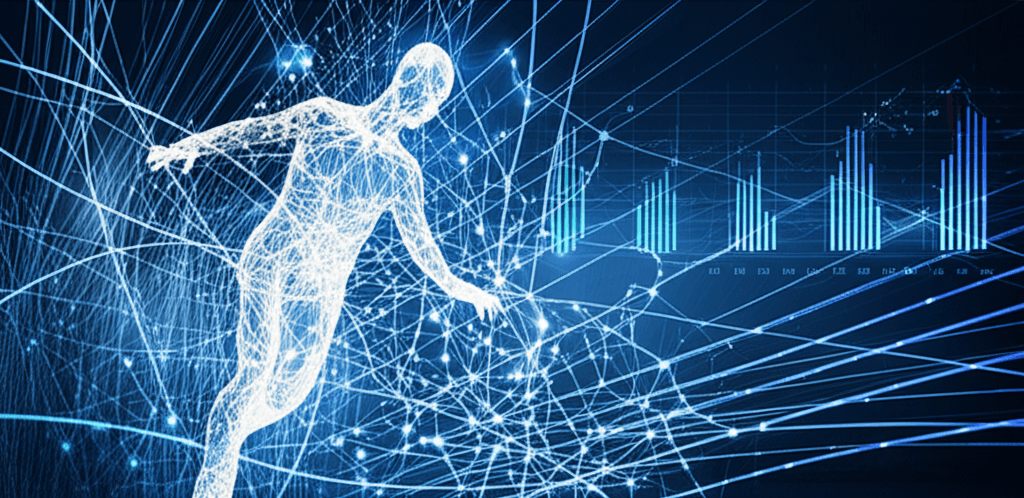Sakana AI's Agent Defeats 98% of Humans in Tough Coding Competition
AI agent ranks top 2% in human coding contest, conquering complex NP-hard optimization problems.
June 21, 2025

In a significant demonstration of artificial intelligence's growing capabilities in complex problem-solving, Japanese AI company Sakana AI has developed an AI agent that achieved a remarkable 21st-place finish among over 1,000 human participants in a live competitive programming contest.[1][2][3] The agent, named ALE-Agent, showcased its prowess in tackling difficult optimization problems, a class of challenges with significant real-world applications in industries like logistics, manufacturing, and energy.[4][5] This achievement marks a notable milestone for AI in a domain that has long been considered a bastion of human ingenuity and creative reasoning.[1][4][5] The event highlights the potential for AI to automate and enhance the discovery of novel algorithms for some of the most computationally intensive problems.[1][4]
The foundation of ALE-Agent's success lies in its specialized design and the novel benchmark against which it was honed.[1] Sakana AI, in partnership with AtCoder Inc., a popular competitive programming platform in Japan, developed ALE-Bench (ALgorithm Engineering Benchmark).[1][6][7] Unlike traditional coding benchmarks that often focus on problems with a single correct solution, ALE-Bench is composed of 40 hard optimization problems, many of which are NP-hard, meaning their true optimal solutions are computationally infeasible to find.[1][8][6][5] This benchmark is designed to evaluate an AI's ability to engage in long-horizon reasoning and iterative refinement, skills crucial for improving solutions to problems where perfection is unattainable.[1][4] ALE-Agent itself is built upon Google's Gemini 1.5 Pro model and employs a two-pronged strategy: it is supplied with domain-specific knowledge through carefully crafted prompts and utilizes an inference-time technique to generate and evaluate a diverse set of potential solutions.[1] This approach allows the agent to mimic the iterative innovation process of human experts, such as by optimizing search algorithms and fine-tuning hyperparameters to boost its score.[1]
The stage for this human-versus-machine showdown was the AtCoder Heuristic Contest (AHC), a series of competitions renowned for attracting top-tier programming talent from around the globe.[4] In the 47th edition of this contest, AHC047, held in May 2025, ALE-Agent, competing under the alias "fishylene," went head-to-head with human contestants under the exact same real-time conditions.[1][4] Its 21st-place finish placed it within the top 2% of all participants, a significant leap in performance compared to standard AI models which, on the same benchmark, performed at a level equivalent to the top 50% of human contestants.[1][4] The agent's performance in another contest, AHC046, was also noteworthy, securing the 154th position, which is within the top 16%.[4][7] These results provide concrete evidence of the high level of capability that specialized AI agents can achieve in complex, dynamic, and competitive environments.[7]
The implications of Sakana AI's achievement extend far beyond the realm of competitive programming. The ability of AI to automate the discovery and engineering of algorithms for NP-hard problems could trigger a paradigm shift across numerous industries.[1] Fields such as logistics and supply chain management, factory production planning, and power-grid balancing are constantly grappling with optimization challenges where even small improvements in efficiency can translate to substantial cost savings and societal benefits.[4][5][7] The development of AI agents like ALE-Agent suggests a future where the laborious and time-consuming process of designing bespoke algorithms, currently reliant on the expertise of highly specialized human engineers, could be significantly accelerated.[7] This would free up human experts to focus on more creative and strategic aspects of problem-solving, while AI handles the intricate and repetitive tasks of code generation and optimization.[9][10]
In conclusion, Sakana AI's ALE-Agent has not only proven that AI can compete at a high level with human experts in the demanding field of competitive programming, but it has also offered a compelling glimpse into the future of automated problem-solving. By successfully navigating the complexities of NP-hard optimization problems, the AI agent has demonstrated its potential to become an invaluable tool for innovation and efficiency across a wide spectrum of industries. While the full impact of this technology is yet to be realized, the 21st-place finish in a field of over a thousand human experts is a clear signal that the era of AI-driven algorithm discovery is dawning, promising to reshape our approach to some of the world's most challenging computational problems.[1][4]
Sources
[1]
[3]
[4]
[5]
[6]
[7]
[8]
[9]
[10]